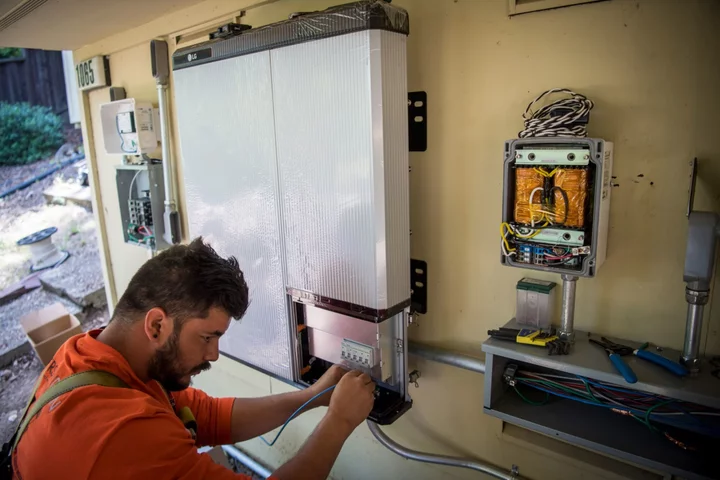Almost a year after US President Joe Biden signed the Inflation Reduction Act into law, American consumers are one step closer to receiving the generous rebates it includes for heat pumps and other high-efficiency electrical appliances. On Thursday, the federal government began accepting applications from states to administer more than $8.5 billion in IRA funding tied to those expenditures.
To hone states’ applications, the Department of Energy (DOE) is providing them with guidance for designing programs to distribute funding to their residents. Once the DOE approves a program from a state or US territory, it will allocate a lump sum to fund those rebates; that funding ranges from $50 million for American Samoa to $690 million for Texas. Nationwide, the incentive pot includes $4.3 billion for replacing fossil fuel furnaces and other appliances with electric devices, and another $4.3 billion to pay for insulation and other home efficiency upgrades.
“This is a big, big deal,” Deputy Secretary of Energy David Turk told reporters on Thursday. “We expect these rebates will start to be available to consumers in some states as early as the end of this year and continuing on a rolling basis in 2024, depending on how quickly states and territories can do what they need to do from their end.”
For consumers, the IRA’s provisions could be the difference between a home upgrade that’s affordable and one that’s out of reach. The incentives include an $8,000 rebate for heat pumps that can warm and cool homes, an amount that could cover roughly half the installation costs of some systems. There’s also a $1,750 rebate for heat pump water heaters, $840 cash back for induction stoves and heat pump clothes dryers and $4,000 for electrical system upgrades.
Households are eligible for up to $14,000 in rebates if they earn less than 150% of their area’s median household income. If not, families can still claim a $2,000 tax credit for heat pumps and other appliances.
How fast the rebates become available to consumers depends on state energy offices’ ability to design effective programs, says Alisa Petersen, federal policy manager for the US program at RMI, a nonprofit that promotes decarbonization. States have until Jan. 31, 2025 to submit funding applications or their money will be redistributed to other states.
“Moving quickly is important, but you don’t want to move so quickly that you’re not designing a useful program,” Petersen said.
The IRA requires, for example, that rebates be deducted from the price of an appliance at the time of purchase. “We want to make sure that these rebates can be available at the point of sale so that individuals aren't required to provide upfront expenses,” said Michael Forrester, assistant director of partnerships at the energy department Office of State and Community Energy Programs. “Because when we're dealing with low-to-moderate income individuals, oftentimes they can't front that cash.”
That mandate, however, complicates the design of state programs. A system must be put in place for a contractor, a state energy office or another entity to verify that a buyer’s income qualifies for the incentives. Forrester said DOE will help states develop verification schemes and noted that if a household is already eligible for government programs based on income, they’ll automatically qualify for the rebates.
Petersen said that distributing the funding upon approval of a state plan means it would be difficult for a subsequent administration to claw back the money or undermine the program.
Whether conservative states will even apply for the funding is another matter. Turk called the program “a no-brainer” for states, seeing as it’s funded by the federal government. But earlier this month, Bloomberg News reported that Ron DeSantis, the Republican governor of Florida and a 2024 presidential candidate, has quietly turned down IRA funding, including $346 million for consumer rebates and home energy efficiency improvements.
Ari Matusiak, chief executive of Rewiring America, a nonprofit that advocates for community electrification, thinks Florida will be an outlier. “The IRA rebates create a pathway for households to access dollars that help them purchase appliances to save them money on their energy bills and live more comfortably,” he said. “So, I'm not sure why states would be eager to prevent that option for their constituents.”

